From One, Many: A Gender Equity Pioneer Whose Work Opened Countless Doors
By Christina Hernandez-Sherwood
Lynn Hardy Yeakel spent her career creating opportunities for women. She was a founder of Women’s Way, the largest women’s fundraising coalition in the country, and served as its chief executive for more than a decade. Inspired by Anita Hill, Yeakel ran for the U.S. Senate during 1992’s “Year of the Woman,” nearly upsetting a longtime incumbent. Later in life, Yeakel was director and Betty A. Cohen Chair of Women’s Health at Drexel University College of Medicine’s Institute for Women’s Health and Leadership, where she remained until her death in January.
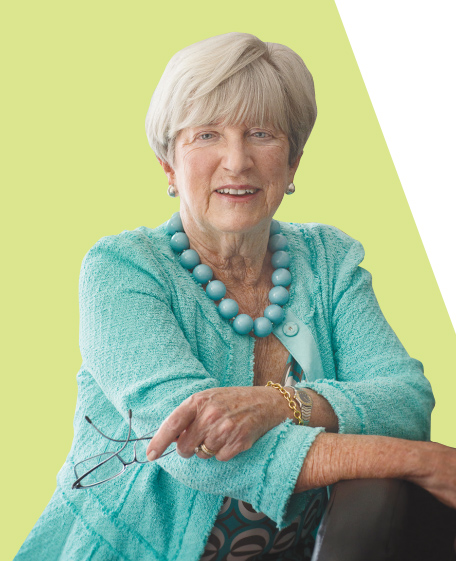
Early in her two decades at Drexel, Yeakel founded the Woman One Award and Scholarship Fund to offer significant tuition support to underrepresented Drexel students committed to practicing medicine in under-served communities. Since its 2003 inception, the Woman One program and the related D. Walter Cohen Shared Leadership Scholarship have granted 38 scholars nearly $3 million in tuition support. Recently, four of those women offered their thoughts on the “door-opening” opportunity they shared, the importance of supporting the underserved, and the one woman who started it all. Their responses, compiled from separate conversations, have been edited for length and clarity.
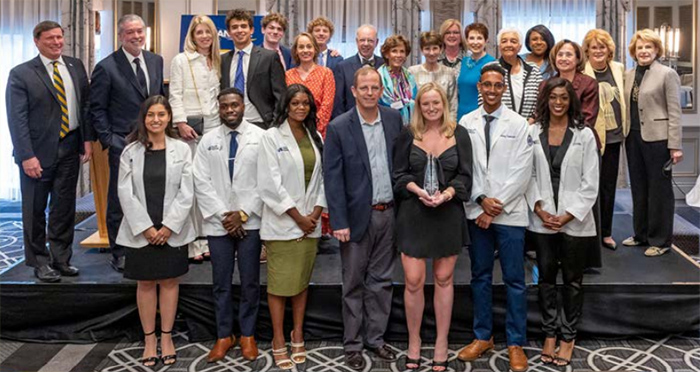
Woman One Scholars and guests, including members of the Yeakel family, at the 2022 Woman One Award Ceremony honoring Lynn.
What memories do you have of scholarship founder Lynn Yeakel?
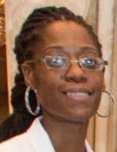
Alicia Howard, MD, MPH ’13, a hospitalist at Catawba Valley Medical Center in rural North Carolina: Lynn was someone who carried herself with a lot of grace and class. She always had a pleasant disposition. We [scholarship recipients] would have conversations with her at the Woman One office to give updates about what we were doing. She really invested the time into the students she was funding.
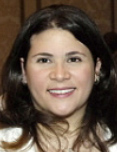
Annette Lopez, MD ’08, assistant chief of the emergency department at the Portland VA Medical Center in Oregon: A lot of the galas and events for the scholarship included a who’s who of Philadelphia and Pennsylvania. Lynn always made sure we [scholarship recipients] were included. She always made sure we met the honoree or the special guests. She always made sure we were given the spotlight.
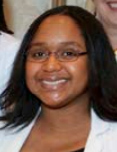
Veronica Ramirez, MD ’09, a pediatrician in a private group practice in Fresno, California: There was this one event in Center City — Lynn was hosting a reception for us — and Patti LaBelle was down the hall. Lynn went over to Patti LaBelle’s room and asked if she would be interested in meeting her Woman One scholars. She totally welcomed us, and we got a picture with Patti LaBelle… When we had these Woman One events, we were meeting just amazing people from the community and learning that skill of networking. Lynn was great at this. She had this tremendous network from all of these different positions she’d held. She would make it a point to introduce us to new people. The skill of networking is something I truly began to understand and appreciate through Woman One.
What did the Woman One Scholarship do for you?
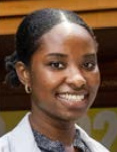
Jacqueline Koomson, MD ’21, a first-year radiology resident at Emory University in Atlanta: The Woman One Scholarship changed the trajectory of my medical career. This scholarship gave me the freedom to explore whatever specialty I was interested in, as opposed to thinking of the financial constraints of medical school debt and feeling pressure to start working early to pay off my loans. I ended up choosing radiology, which is a five-year residency and a one- to two-year fellowship. Not having the financial constraints of medical school allowed me the freedom to pick this six- to seven-year journey because my debt is a lot less.
Howard: We [scholarship recipients] had a chance to see other professionals who were actively working in the field of medicine, as well as other fields. It was inspirational to see that year after year. I realized when I left Drexel and started my own career that I wanted to have an impact… We also had the chance to talk with Lynn Yeakel and see her philanthropy in progress. Being able to see how she navigated and organized her philanthropic efforts each year had the most impact.
Lopez: One of the insurance companies that sponsored the scholarship gave me a job between my first and second year. I was assistant to a medical director for AmeriHealth. It helped me become familiar with admission and discharge criteria, which I use almost on a daily basis as I make decisions for patients at the hospital… We also got very familiar with interviewing and being in front of the cameras and ensuring we were able to effectively communicate. Now I’m the Spanish spokesperson for the Oregon Poison Center. I do all of the Spanish media, so that training helps.
How do you continue to support women and underserved communities in your career?
Ramirez: I always make time to mentor students, usually through the Health Careers Opportunity Program (HCOP) affiliated with Fresno State, which is a program that I went through. It’s a great support system. I had a sense of the same family connection the four years that I was part of Woman One as I had at HCOP. It was this network of colleagues who are going through the same thing at the same time and support one another in whatever way we can. I also mentor high school students who are part of a pipeline program called Doctors Academy. Students from rural and under-served areas apply to this academically competitive program. These are kids who would otherwise have a disadvantage until we mentor them. A few of the students who meet certain criteria have guaranteed admission to medical school at UCSF. I’m really big on this pipeline. There are people who came before me who helped me, and it’s important to me to give back.
Howard: I’m the board chair of a nonprofit called Sisters of the Dove, located in Charlotte. It’s affiliated with the Psi Mu Zeta graduate chapter of Zeta Phi Beta sorority. Each year we raise money for local minority high school students who are graduating and going to four-year colleges. We’re trying to pay it forward to these students, just like I was inspired [by Woman One] as a student.
Koomson: One of my big life aspirations is to create a mammography clinic in Ghana, where I was born, and improve women’s health care access there. Breast cancer is very prevalent in Ghana, but a lot of women don’t know they have it until very late because they don’t get the screening. When I did a rotation in Ghana, I worked in the trauma and emergency room. One woman who came in had very late-stage breast cancer. Her breasts were deformed and inflamed. You could tell she had been suffering for so long but didn’t have the access to breast care or affordable health care. I find it incredibly sad that large portions of the world aren’t getting the basic access we’ve had for so long. I feel like I can do that for Ghana and make a small impact for the people that I’m culturally familiar with. That’s where I hope my journey leads.
Lynn Yeakel’s legacy is living on through the dozens of women she has supported and inspired, and her influence will grow larger still as the Woman One program continues with a new leader. Because Yeakel had planned to retire in 2022, a search had already begun for her successor. Nancy Spector, MD, officially stepped into the role in August.
Back to Top